Kiddush Hashem: Special Interview with the Religious Professor Recognized Globally
Prof. Pinchas Alpert, an expert in Earth Sciences, speaks about his missed opportunity to train pilots for Operation Entebbe due to Shabbat observance, his annual trips to NASA, and sheds new light on the tragic drowning of ten teenagers at Nahal Tzafit.
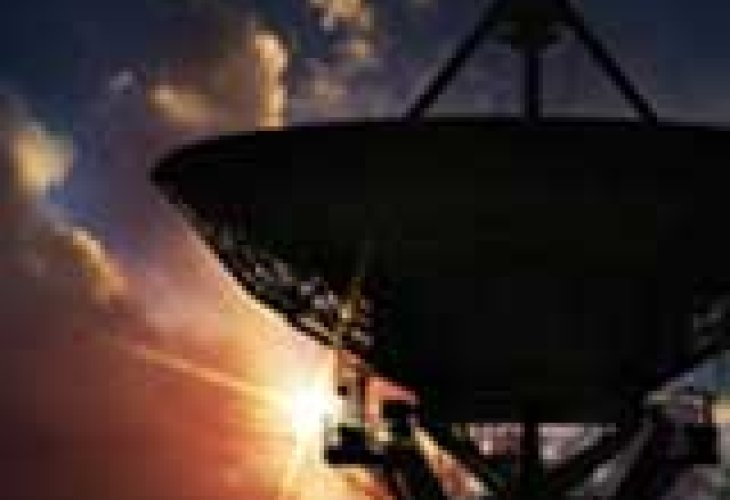
The entry ticket to the ceremony where Prof. Pinchas Alpert, a professor in the Department of Geophysics at Tel Aviv University, recently received the Bjerknes Medal, cost 500 euros. This significant sum did not prevent thousands of people, including world leaders, politicians, and about 15,000 renowned researchers, from attending the ceremony where the most prestigious award for outstanding achievement in Earth and atmospheric sciences was given.
"The whole event was very moving, and about 500 people came to hear my lecture that preceded the award," Alpert explains. "Among the audience were also some of my close family members, and on such a rare occasion, with such important people listening to me, I very much wanted to include Hashem in my lecture. The lecture took place in Vienna on Yom HaShoah, and this symbolism motivated me even more.
"The most powerful thing I felt, and wanted very much to say, was that all the honor I receive actually belongs to the Creator of the world. A few days before the ceremony, during the Hallel prayer on Passover, I encountered the verse: 'Not to us, Hashem, not to us, but to Your name give glory,' and that was exactly how I felt. I was really struggling with how to incorporate this into the lecture. The lecture of awardees is supposed to summarize their research and achievements, and I wasn't sure how to bring that in. What’s more, I knew, based on my acquaintance with the style of the people in the room, that if I started talking about God, they would think I've gone mad."
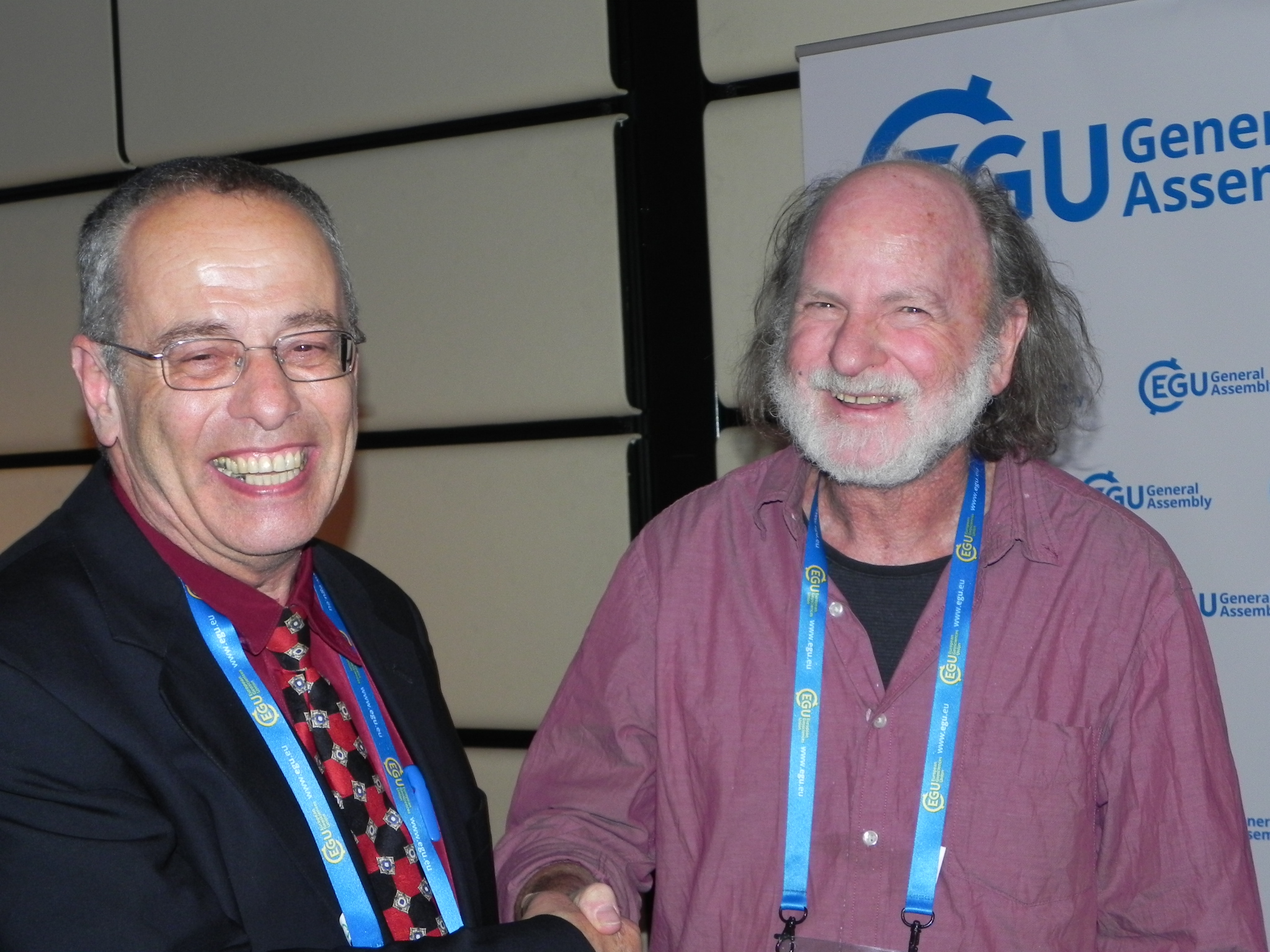
This sounds indeed complicated. What did you do in the end?
"I simply added a slide to the lecture titled 'My Personal Feelings.' I thought this would come across and work the best. I just included the verse, 'But to Your name give glory.' I told them: 'You say it's luck or just hard work, and I say it's Hashem. I feel the honor belongs to Him.' And it went well; it was even very powerful.
"Incidentally, in the audience, there was a famous German professor I've known for many years. Forgive me, but he really looks like a Nazi. I was sure he was disconnected from anything spiritual, to say the least. A few days after the ceremony, I receive a letter from him, a page and a half long, where he writes to me about how he feels that God is with him, helping him in his research, allowing him to succeed. You think a friend you've known for years is an atheist, so disconnected, and you have no idea how connected he is."
What is the Bjerknes Medal, essentially?
"The Bjerknes Medal is the most prestigious and highest recognition that a person can receive for scientific achievements in Earth sciences research. Bjerknes was the first scientist to develop modern meteorology. He wrote his vision more than 120 years ago, predicting that in the future, meteorological forecasts would be possible. In his time, it was simply impossible. It was very exciting to receive the medal in his name for several reasons, including that I've been teaching his writings for many years."
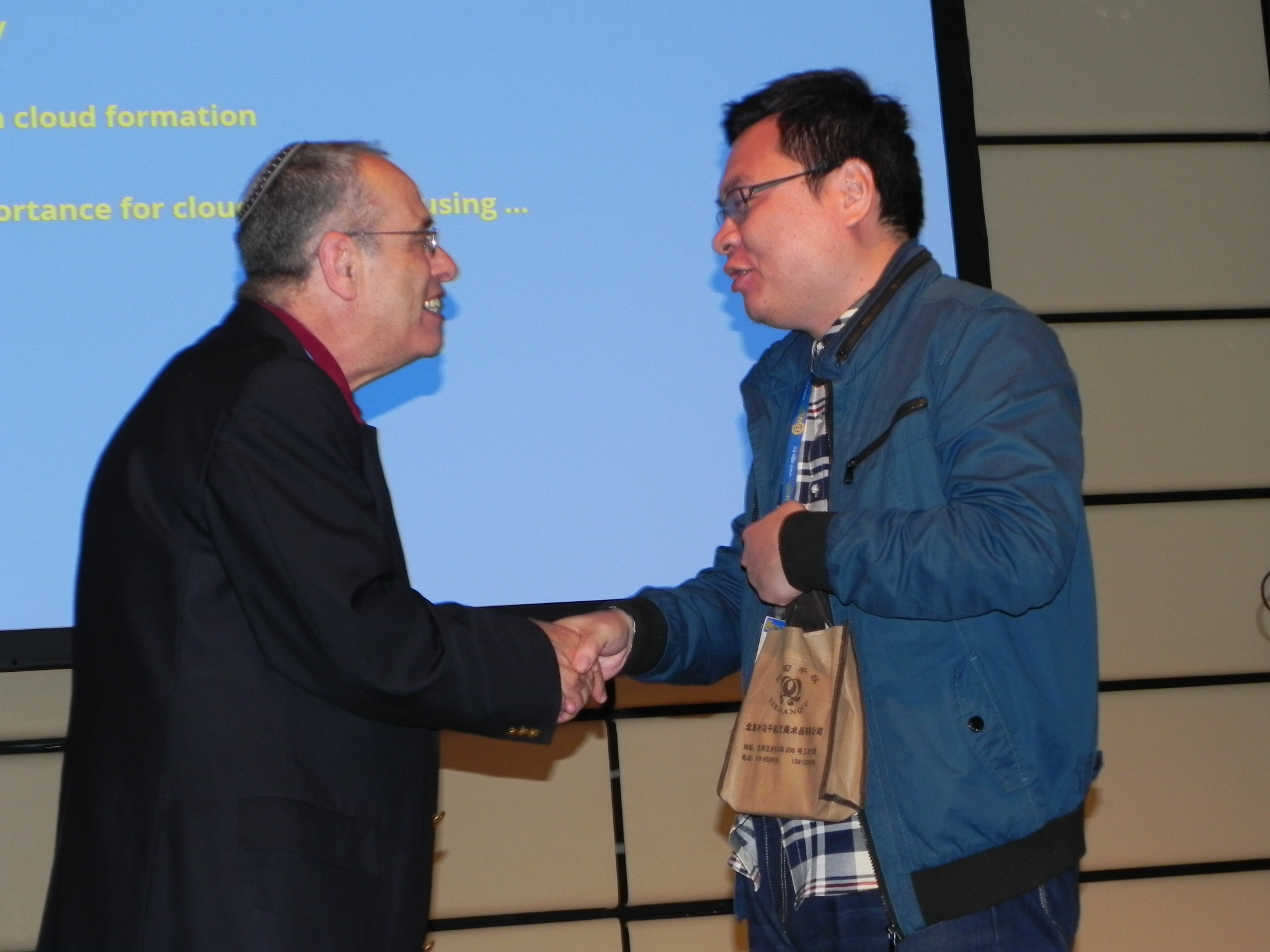
From the Cheder in Mea Shearim to NASA
Almost without noticing, we jumped with Prof. Alpert to the end, but as customary, we will start at the beginning. "I am 68 years old," says Alpert. "Married to Rachel, formerly the director of a day center for psychogeriatrics, now retired, and volunteering as the chairwoman of the senior citizen association in the Yavne region. We have eight children. One of our children is Rabbi Yuval Alpert, who founded the religious core group in Jaffa about 15 years ago.
"In my childhood, I lived in Jerusalem, near the Mea Shearim neighborhood. In my early years, I studied at the famous 'Etz Chaim' cheder in the Zikhron Moshe neighborhood. My uncle, Moshe Alpert, was the area's head during the Mandate period, and my father studied under the disciples of the Gra. My father's approach was to send us to cheder until about third grade, to get the foundations of Torah and fear of heaven, and then he would transfer us to a religious school that also taught sciences, English, mathematics, and such. But actually, almost the whole day I was in Mea Shearim, and in prayers – only there.
"In the army, I was in the academic reserve," Alpert continues. "I studied physics, mathematics, and computers for my bachelor's degree at the Hebrew University. For my master's degree, I also studied physics, in Hebrew, and then the army took me to serve as a meteorologist in the Air Force. Initially, I didn't want to be a meteorologist in the army. I specialized in lasers. But my commander told me it's either this or artillery. By the way, today my commander works under me at the university. He came to me at the age of 70 to do a doctorate. He is 84 years old and still comes every day."
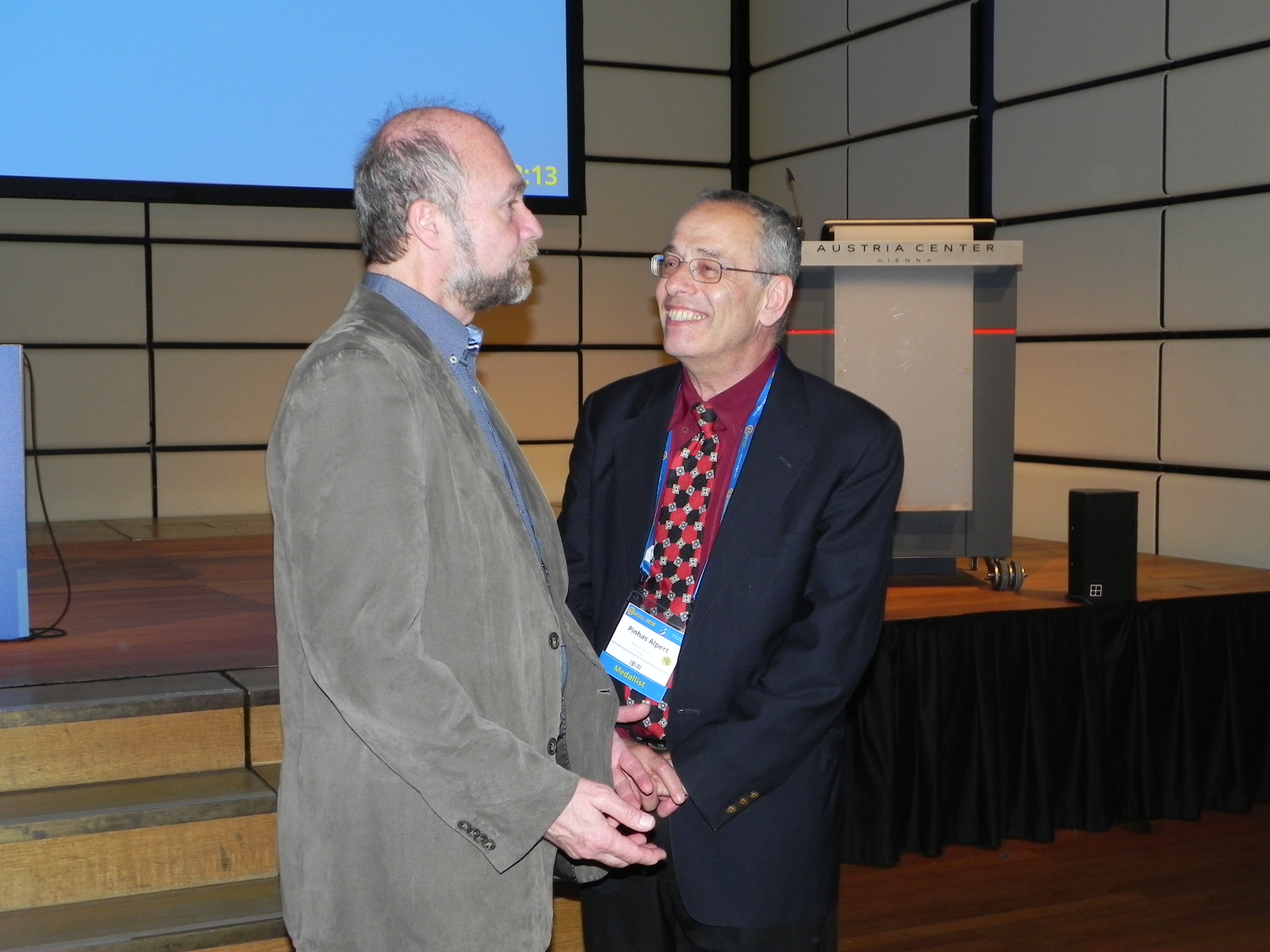
What exactly does a meteorologist in the Air Force do?
"No activity of the corps - including and especially the most complex and secretive ones - takes place without meteorologists. They need to say what the weather will be, if there will be clouds, and generally if the conditions are suitable for the operation. Many times even the pilots do not know where the operation will be until a few minutes before they go out, but the meteorologists do, because the final planning depends on them. For example, some time after the Air Force's attack on the nuclear reactor in Iraq, Begin said there was a certain date for the operation, but it was postponed because that's what the meteorologists recommended."
Tell us about a significant experience you had during your military service.
"As the base meteorologist from which the planes took off, at Ben Gurion in Lod, I was responsible for debriefing the pilots after Operation Entebbe, the famous operation that became known worldwide. After the fact, I found out that the Air Force’s chief meteorologist was supposed to have me prepare and publish the forecast for the operation's pre-planning, the forecast upon which many things are determined, but he didn’t ask me because it was on Shabbat.
"Today, when I watch the movies about Operation Entebbe, I literally laugh, because it's completely fabricated. In the movies, they add moments where the plane shakes, swaying between sky and earth for drama's sake, but that's not how things were. There were hardly any shakes on the plane. And as the person who compiled the report on the weather conditions during the flight - it amuses me greatly."
After five years in the army, Alpert was discharged, and right after his release, he began his doctorate and post-doctorate at Harvard. A few years later, he returned to Israel and found his place at Tel Aviv University, where there was an opening for a lecturer position in the Department of Earth Sciences. "Well, I've been here since then. In the Department of Geophysics. Geo refers to Earth, and essentially, we deal with the study of Earth's physics.
"After I continued with my research, I started to establish a close connection with NASA, the American space agency. For the past 20 years, I have gone to NASA almost every year. Beyond that, I use their satellites to improve our understanding and knowledge about the weather, and I also teach there."
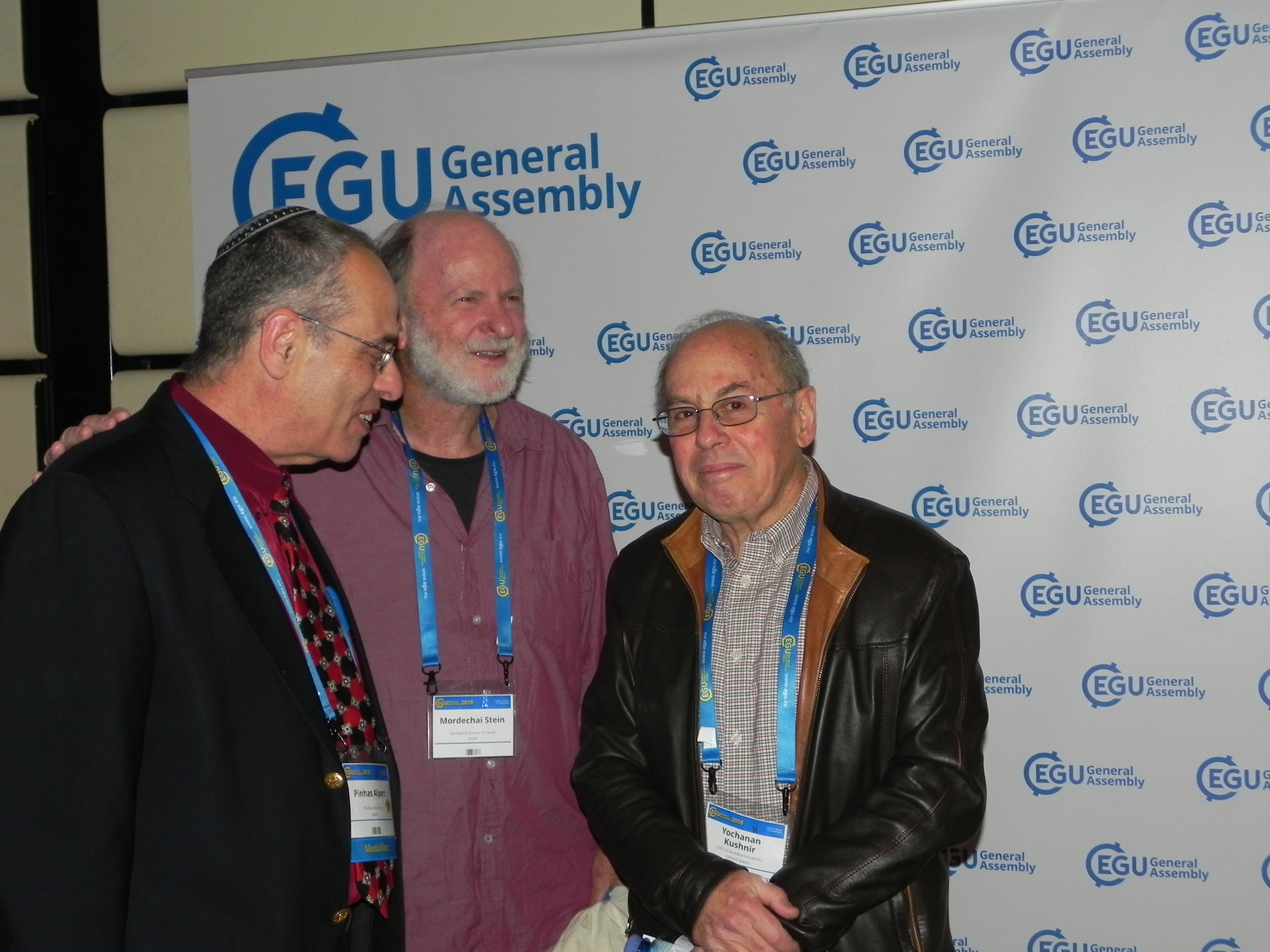
Mishnah Berurah at Tel Aviv University
As one might easily assume, the combination of a religious professor at Tel Aviv University, considered one of the more secular in Israel, will be interesting and challenging. "For decades, I've been giving a Torah class at the university's synagogue," says Alpert. "I pray here every morning at twenty past seven, and after the prayer, I give a lesson. We mainly study halacha, Mishnah Berurah, Shulchan Aruch, etc. The class is attended by religious and non-religious people, faculty, administration, and more. Basically a bit of everyone.
"Initially, when a synagogue was opened here, it wasn't peaceful. Shortly afterward, some Arabs came to the university president and asked him: 'Why do you open a synagogue but not a mosque?' And he replied: 'No problem, organize a few guys, show there's demand, and I'll build you a mosque. And if Christians come, I'll build them a church too.' After things calmed down, some Reform individuals came and asked why an Orthodox synagogue was built and not a Reform one. So they made two synagogues – one Orthodox and one Reform. In the Reform one, by the way, there isn't a minyan."
Moments before our conversation's end, I feel the need to ask Prof. Alpert, whose significant part of his research deals with predicting floods, about the heavy disaster that claimed the lives of ten young people who were hiking in Nahal Tzafit in the Negev. To my question, which dealt with a topic that occupied many, seeking the physical explanation for the occurrence of the severe flood, the professor answered that there are several reasons for it and that predicting floods is very difficult.
"There are several reasons why the disaster happened at Tzafit. One reason is that the desert ground does not absorb water, unlike soil in fields and agricultural areas. As a result, an impermeable layer forms, preventing water from seeping in, so it accumulates on the surface, building up over time.
"The second reason is the type of clouds typical to the desert. These clouds, unlike others, naturally create particularly strong rains, falling intensely on the earth in very short times. The large amount of water that falls in a short time in the desert climate results in a lot of water reaching a narrow, sloping area within a short time, with the soil, as mentioned, not allowing the water to absorb. When you combine all these factors together, you get a flood that happens very quickly and sometimes comes as a complete surprise.
"One reason why predicting floods is difficult is that it is challenging to measure data in deserts for various reasons. Therefore, it is very gratifying that we patented a method of using cellular systems, through which we succeed in obtaining data in areas where it is very hard to collect data. B"H, we have already studied the matter in several floods and found that with our method, we can get data that cannot be obtained in any other way.
"Contrary to what many people think, the storm we saw on the day of the disaster is not a winter storm. It is actually typical of spring. It was a climate system that brought air from Africa’s direction and its deserts. Such things happen sometimes, but we tend to forget them. But alongside all this, it should be said that such a strong event hasn't happened in many years. I hope B"H, with the new method we developed, we can identify floods in a better and more efficient way so that people’s lives can be saved, and we won’t pay the highest price, the price of human life."

